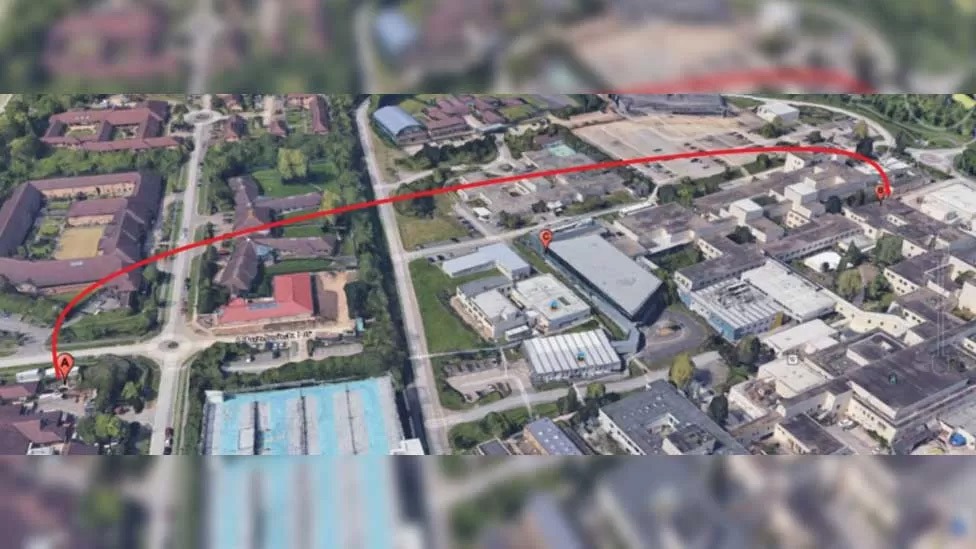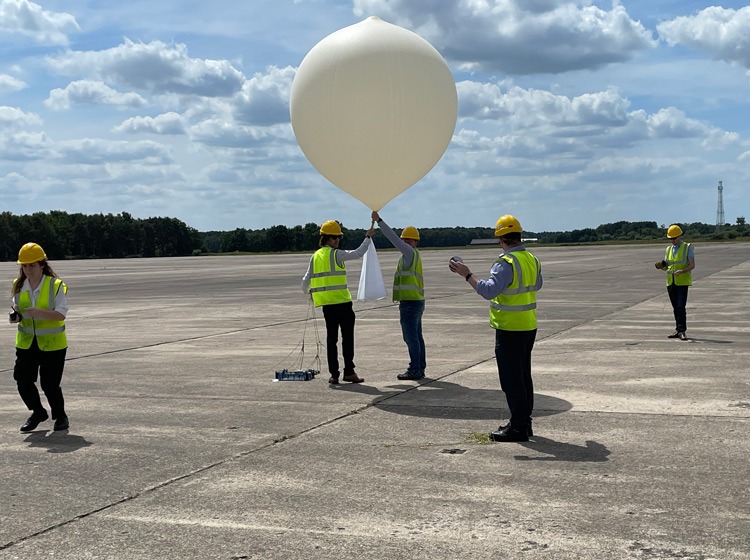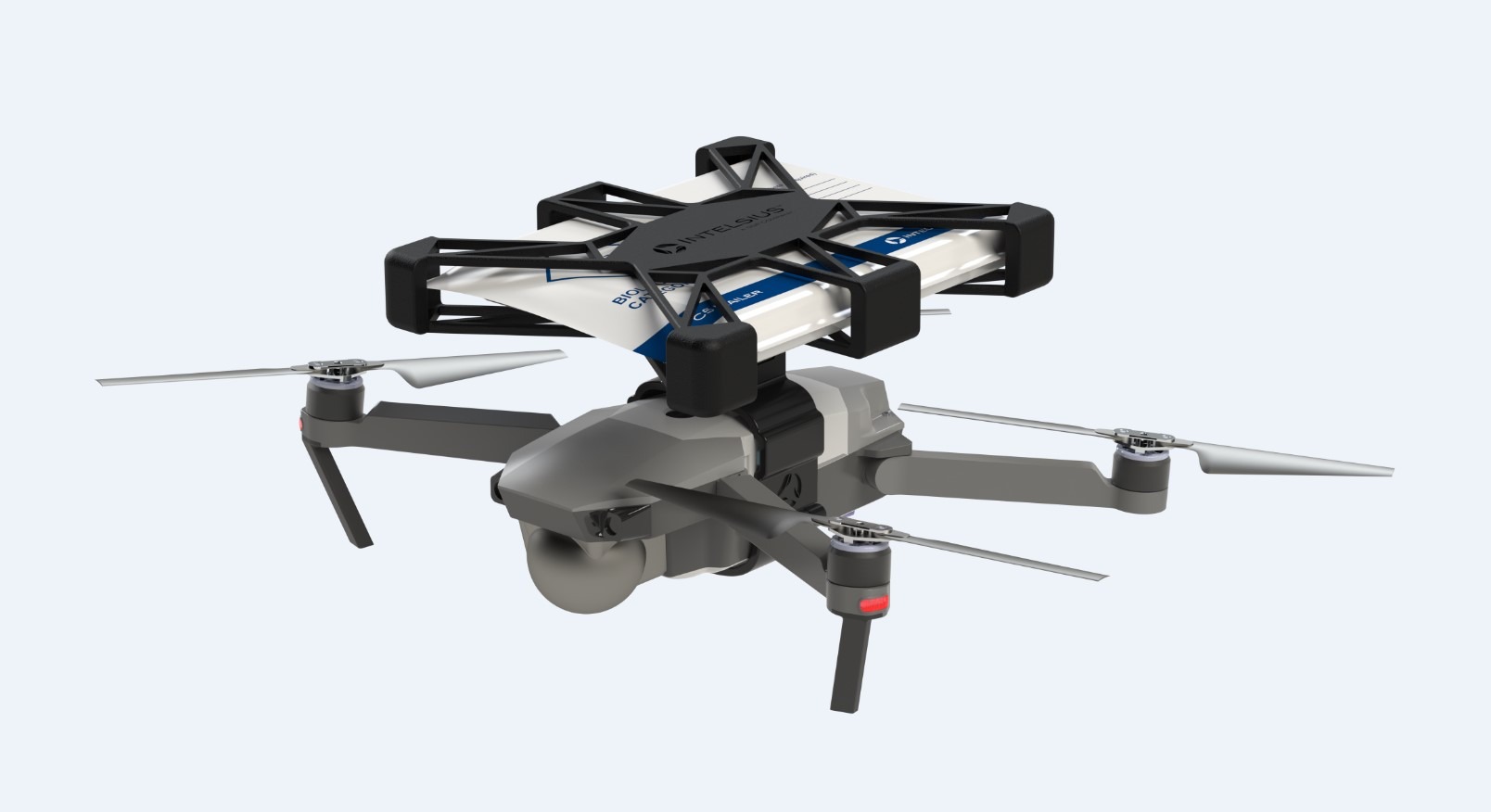As part of the InMed consortium, we are exploring the opportunity to use drones to improve the current processes for delivering time-critical biological samples between hospitals and testing centres, specifically in densely populated areas where existing logistics solutions can be slow and expensive.
There are many challenges when approaching this; however, a primary concern of InMed is achieving a safe, risk-assessed and fully certified solution. As the packaging partner within the consortium, Intelsius is working on transferring their experience of developing dangerous goods packaging for traditional transport methods (road, air, sea) and tackling the unique challenges specific to new drone transport methods.
Achieving Compliance and Accreditation
The UK Vehicle Certification Agency (VCA) Dangerous Goods Office and Civil Aviation Authority (CAA) have partnered to establish a test and approval regime for Crash Protected Containers for drone transport of dangerous goods, including biological samples. In April 2022, the VCA released Crash Protected Containers for Dangerous Goods Carried by Remotely Piloted Aircraft Systems Test Procedure (Version 1). This procedure tests which containers must successfully undergo to qualify as crash-protected containers.
Whilst this procedure outlines the test requirements and success criteria for drop testing containers, the design of the drop test, including the mechanism for raising the container to the required height, release mechanism, measurement of test criteria and risk management, has been left open to innovators within the market.
What We’ve Done So Far
Intelsius have developed a drop test procedure which utilises a tethered helium weather balloon to elevate containers to an operational drone height of 60m. In addition, we have designed a custom remote-release, self-stabilising drop rig which allows the operator to drop test packages in a fixed-release orientation over a predefined target area on the airfield.
Using large, tethered weather balloons offered a unique opportunity to create a controlled, repeatable, and measurable test procedure for compliant dangerous goods drop testing. Drop testing was conducted over several days on Elvington Airfield in York, a short distance from DGP Intelsius’ UK office. With specific CAA’ Dropping of Articles’ approval granted over a range of dates, this proximity to Elvington Airfield allowed for further compliance with the procedure outlined by the CAA and VCA with the flexibility to arrange test dates based on optimal weather conditions.
What We’ve Learned
The feedback from iterative drop testing has allowed us to optimise the InMed Drone Package design to reduce weight and provide further crash protection where testing has highlighted weaknesses. Comparison against unprotected baseline primary packaging drop tests highlighted the protection provided by the InMed Drone Package solution. The InMed Drone Package is a fully crash-protected, leak-proof solution capable of transporting dangerous goods and biological samples in various primary containers (glass and plastic vials). In addition, the package has been optimised with a rubberised protective mount designed to reduce the weight allowing for compatibility with smaller drone solutions. It has a universal clip to securely attach the package to a range of market RPAS vehicles, including the DJI Mavic Pro 2 for the InMed use case.
What’s Next?
The InMed Drone Package has passed all leak-proof and crash-proof criteria and is therefore compliant with the testing requirements of Crash Protected Containers for Dangerous Goods Carried by RPAS as described in the VCA RPAS CPC Test Procedure (Version 1, April 2022). We have submitted the drop test report to CAA with a view to getting approval for the Intelsius InMed Drone Package as an RPAS Crash Proof Container for the specific flight conditions of the InMed flight use case.
Test Flights at Milton Keynes University Hospital
On October 21st 2022, InMed carried out further flight tests between Saxon Clinic (point A) and Milton Keynes University Hospital (point B) in Milton Keynes. The aim of these InMed test flights was to demonstrate the feasibility of fast, safe, and reliable short-range medical/clinical transport by drone in a real-world healthcare environment.
You can watch a short video about the Milton Keynes University Hospital test flights here.
Get in Touch
If you have any questions about certified shipping solutions for drone logistics, the InMed consortium, its members, testing, and future projects, we’d love to hear from you.


